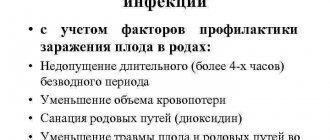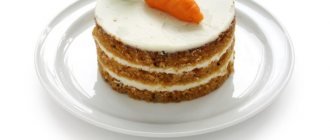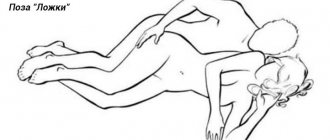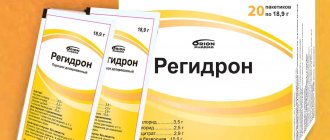Can a breastfed baby get sick?
This question comes up quite often on mommy forums. Answer: as much as possible! But while breastfeeding, the child’s illness will be much easier, since breast milk contains many vitamins and microelements that are so necessary for recovery.
Another popular question: will an infant get sick if the mother is sick? Answer: You may get sick, or you may not. During the first year of my daughter’s life, I caught colds several times, but the child did not get sick. Why? I think it’s all about the same breastfeeding, because milk contains antibodies to fight specifically the current disease. That is, the child may be sick, but you don’t know about it, since his body successfully fights the infection with the help of breast milk. Wow! Another point in support of breastfeeding.
If mom is sick
You can suddenly get sick at any time of the year.
Nursing mothers who have established lactation are susceptible to colds. The reason is that the respiratory system works with increased loads, which go towards milk production. As a result, the immune system weakens and infections enter the body faster. The main question in the event of a negative development of events is whether a newborn child can become infected with ARVI from his mother while breastfeeding. Modern research and WHO recommendations indicate the need to preserve this method of feeding infants.
Important! In 90% of cases, you will not have to limit contact with your child. There is no need to boil milk or other disinfection methods.
There are a number of situations in which it will be necessary to temporarily or permanently abandon the guard and switch to formula nutrition. The need for weaning is determined by the type or severity of the disease.
Important! You should stop breastfeeding completely (switch to formula) only after consulting a pediatrician.
If the mother of a newborn baby is sick, she also needs to undergo examination. Diseases incompatible with gw:
- infectious in an acute form (toxic substances from microorganisms can get into the milk);
- purulent mastitis;
- recovery period after surgery (effects of anesthesia, taking medications, antibiotics).
It is possible to partially retain breast milk nutrition. If your doctor allows, you should pump frequently. It is recommended to repeat the procedure every 3-4 hours to prevent stagnation of fluid in the chest. In some cases, this is not done to ensure that the newborn is fed, but to eliminate side effects or reduce future milk production. After the mother has fully recovered, the baby in 90% of cases can return to the usual way of eating.
If the cause of the development of the disease was not an infection or a dangerous viral type of pathogen, then you can continue breastfeeding during the period when the mother is feeling unwell. When a cold strikes during breastfeeding, how not to infect the baby is the first question that arises. A common acute respiratory infection will not cause harm, so to prevent the child from becoming infected, it is enough to use a medical mask.
90% of viruses and bacteria are transmitted by airborne droplets or after contact. In order to minimize the likelihood that a newborn baby will get sick (infected), it is recommended, in addition to using a gauze mask, to ventilate the room.
Wet cleaning and the use of disposable items for hygiene procedures also help keep the baby healthy and continue to feed him milk. It is also necessary to wash your hands thoroughly before interacting with the toddler. Lactation can be continued if the treatment program does not use antibiotics or other drugs that are unsafe for the baby.
Important! It is recommended to agree with your pediatrician on the optimal feeding schedule, as the schedule may shift slightly.
An infant has fallen ill with ARVI - what to do?
Of course, we will talk about a simple cold . Only a doctor can make a diagnosis, so call your doctor first. If your baby’s temperature rises above 39 degrees, don’t hesitate to call an ambulance! No one will judge you for this, on the contrary. It doesn't hurt to be on the safe side.
Why my article if the doctor tells you what to do when an infant gets sick? Yes, perhaps he will prescribe treatment, mutter general words... But this is not enough, and after the doctor leaves you will still have a lot of unanswered questions. Most often, nothing can be achieved from them at all - most doctors don’t care about your baby, they have a million more like you.
Therefore, we take the bull by the horns, that is, we take the situation into our own hands. Your task is this:
- To treat the child qualitatively, that is, to the end, so that there is no relapse or complications.
- Learn all the lessons from the circumstances of the illness.
- Don't burn your nerves.
what temperature should be lowered in a child
So, the child has a high temperature. The most important thing that needs to be ensured now is healthy sleep .
Many mothers ask: what temperature to lower? But it is impossible to give an exact answer. It all depends on the child’s well-being. If the baby feels great with a temperature of 38.5, plays or is lethargic, but at least does not suffer, then you don’t have to worry about it - it’s good if the body can cope with the infection on its own. But if the child cannot fall asleep, cries, trembles, it is better to give an antipyretic, even if the temperature does not exceed 38 degrees . The most important thing is that the baby gets plenty of rest and recuperation during the first couple of days of illness! For example, the first day our daughter had a fever she slept almost all the time. All I can do is monitor her condition and, say, if the temperature goes over 39 degrees, I will wake her up and give her medicine. But, as a rule, it is at this moment that she herself begins to spin, cry and cannot sleep - which means it’s time. Someone suffers worse and cannot sleep with a lower temperature - do not wait and do not torment the child. It's my opinion.
How to lower the temperature?
At the moment, there are two complementary remedies against fever in children - Nurofen syrup and Cefekon suppositories . Both can be given no more than three times a day . But you can alternate them! That is, let’s say at 21:00 they gave Nurofen (and children most often have a fever in the evening). This means that the next dose of Nurofen, if necessary, will only be 8 hours later - at 5 am. But about 4 hours after taking the syrup - at 1 am - you can insert a candle if the temperature does not subside or has risen again. After 4 hours Nurofen again, after another 4 Tsefekon and so on.
However, every time you need to weigh everything - should you give your child an antipyretic or let the body fight? Everyone knows that an elevated temperature means an active fight against infection, and it is better not to interfere with this process. There is no need to stupidly follow the instructions of the drug or even the doctor. You always need to think for yourself and look at the child. Children are stronger than we think!
Drink plenty of fluids
If your baby is not breastfed, try to give plenty of water , at least every half hour or more often. This can also be done in a dream - from a sippy cup or a bottle with a sports neck. If the baby is breastfeeding, most likely he will not want to drink water. You can try teas and compote... But why is milk worse? The more milk the better! After all, it contains all the antibodies so necessary to fight the disease. So if a child hangs on his chest for the first day of his illness, this is wonderful. There is a high probability that this will all end, as it happened one time out of two for us. Yes, by the way, in 1.2 years we were sick twice: the first time for three days, the second time for only 1.5. Someday I will talk about hardening a child - how we do it. Subscribe to my blog so you don't miss useful materials.
If you do hardening from birth, your baby will hardly get sick at all! And when he gets sick, he will cope with the disease very easily. Do you want the same?
The child does not eat when sick
If a baby refuses to eat during illness, this is normal. Don't force it. In general, even adults are not recommended to eat while the body is fighting an infection, since excess energy, which is not there anyway, is spent on digesting food. It’s better to drink chicken broth a couple of times a day, eat thin porridge, and eat fruit. All. The rest is just water. Yes, you yourself know that when you are sick, you don’t feel like eating. The body itself knows what it needs and what it doesn’t!
The first signs of the disease during hepatitis B
Infection with such diseases most often occurs through the upper respiratory tract, which in a young mother is already overloaded, because milk production requires a large amount of oxygen. Therefore, at the first signs of viral respiratory infections, a woman should take measures aimed at her speedy recovery. The first symptoms of a cold are :
- severe weakness;
- rapid fatigue;
- tinnitus or tinnitus;
- runny nose;
- pain and sore throat;
- elevated temperature;
- cough, sneezing.
A common cold usually lasts no more than 10 days, but if treatment is not started in time, the situation can worsen and provoke the occurrence of more serious diseases.
Attention! At the first signs of the disease, you should not thoughtlessly start taking any medications. Many of them are prohibited during breastfeeding and can harm the health of the mother and her baby.
Should I breastfeed if I have herpes on my lip?
Often, during lactation, women develop small transparent bubbles filled with liquid on their lips. After 3-4 days they burst, and in their place a dense crust forms, under which the process of regeneration of the mucous membranes occurs.
This cold is called herpes and most often it requires only local treatment. When such rashes appear, there is no need to stop breastfeeding or even transfer the child to specialized formulas.
Typically, the appearance of herpes on the oral cavity is accompanied by only slight itching . The use of special ointments and gels allows you to quickly and safely cure a cold.
When can you go for a walk after illness?
So, the child seems to have recovered, hurray! Is it possible to go for a walk? What if my child has a cough and runny nose? Perhaps you need to stay at home for another week?
No! You can and should go for a walk from the moment the child’s temperature does not rise during the last 24 hours . This is the end of the disease. For example, last night the temperature was still 37.2, today everything is normal, but still we need to wait one day. And the next day, please go outside, even if the child’s snot and slight cough have not gone away. This does not apply to pneumonia, bronchitis and other serious diseases - a special regime is needed here. And ARVI will only escape faster from fresh air :))
But again, you need to look at the weather. If it’s minus 15 outside, there’s strong wind, rain or slush, it’s better not to take risks. After all, the baby’s body is still weakened and may catch a cold again. It is also not recommended to walk in crowded places. But if there are no particular risks of catching a cold, then go ahead!
Our grandmothers clutch at their hearts if we go out for a walk on the 4th day after the onset of the disease . But, oddly enough, the child does not get sick after this, which means everything is correct, right? And some sit at home for two weeks, even when all the snot has passed, just in case! At the same time, mothers howl with melancholy within four walls, and children are furious because they cannot throw out all their energy at home. Do you know how much energy they have accumulated in just 3 days of constant sleep? Ooh! I remember how my daughter rushed around the apartment as soon as the fever subsided. I went to bed two hours later than usual - oh well. The body requires movement, you need to listen to it
But, oddly enough, the child does not get sick after this, which means everything is correct, right? And some sit at home for two weeks, even when all the snot has passed, just in case! At the same time, mothers howl with melancholy within four walls, and children are furious because they cannot throw out all their energy at home. Do you know how much energy they have accumulated in just 3 days of constant sleep? Ooh! I remember how my daughter rushed around the apartment as soon as the fever subsided. I went to bed two hours later than usual - oh well. The body requires movement, you need to listen to it
That seems to be all I wanted to say about what to do if an infant gets sick. After all, the first time is always scary! Then it all seems like a truism, but at first it makes your hair stand on end.
I hope my article will help mothers relate more easily to their child’s illness, because all children get sick in one way or another. Also, now you know whether you need to lower your temperature, whether you can walk with a cough and snot - the first time I myself was not boom-boom. Thank you for the fact that there were adequate people who suggested it, and I am passing on this knowledge to you.
Do not be ill! Wish you all the best.
Your Blogomomochka - Ekaterina Ulyanova
How to protect your child from illness
There are ways to help you avoid infecting your baby. Below we will tell you more about them:
- Frequency in his room. Carry out daily, wet cleaning. Add special cleaning products to the water that contain an antibacterial effect.
- Wash your hands thoroughly, it is better to use an antiseptic afterwards
- Do not enter your child’s room without first taking off your shoes and outerwear.
- Isolation of a sick member in the family (an extremely difficult task to perform, so do it if possible)
- Change bedding more often
- Sterilization of toys and other things in the child’s room
- Ventilate the room regularly. The air must be fresh. It is best to open the window and leave the room for a few minutes.
All these rules are quite feasible and do not have any complexity. In addition to isolating a sick family member. This recommendation is followed in cases where the family has a large living space. Of course, if, for example, you have a one-room apartment, this is an impossible rule, but you can wear a mask when interacting with your baby and also follow the rest of the rules stated above.
External factors of child pain:
- Neglect of parents to properly care for the child (regime, physical education, hardening).
- Early visit to kindergarten .
- Artificial feeding at an early age and illiterate further organization of nutrition.
- Passive smoking in utero and subsequent periods.
- Frequent, uncontrolled use of medications . This is especially true for antibiotics.
- Poor environmental situation in the city and area.
- Unsanitary conditions in the apartment (lack of hygiene, dirty premises).
First aid
During illness, the child’s health condition deteriorates significantly. And in order not to aggravate it, it is better not to irritate the baby again - you should not shout at him, just as you should not force him to eat. The child will eat as much as he can. It makes sense to reduce the amount of food, but increase the number of feedings.
Harmful for babies and overheating. When you have a cold, it is better to wear it according to the temperature regime. But if the child is hot, you should choose lighter clothes.
Signs of an increase in temperature are:
- redness of the skin;
- hot body;
- the desire to constantly throw off the blanket in a dream.
It is better to reduce the temperature with the help of medications.
Rubbing is possible only with ordinary water heated to 35 degrees. First, the abdomen is blotted with a dampened towel, then the neck, groin and armpit areas.
Is it possible to do a massage if the baby has a cold? Massage for colds is contraindicated as it will make it difficult for the child to breathe.
Since the impact will be on the chest, the available lung capacity will decrease. And with a cold, the baby’s breathing can be difficult due to the large amount of mucus secreted from the nose and mouth, so massage will become even more difficult.
You can walk with your baby, but only if the weather is favorable - without piercing wind, rain and sleet.
Can a baby get infected from his mother?
Is it possible to breastfeed a child if he or his mother has a cold? If the mother has a cold, it is strictly not recommended to wean the child from the breast. Breast milk contains fragments of inactive bacteria and antibodies that help the baby strengthen its own immunity to the disease.
In the only case it is worth stopping breastfeeding - if the mother switched to treatment with strong antibiotics. Then, even after the end of treatment, you will have to not give the baby mother’s milk for some time - until the bactericidal drugs leave the body. However, it is possible and necessary for a mother to maintain lactation, even during her own treatment.
If your mother has a cold, you can take some simple steps to protect your child from an accidental illness:
It is important not to limit the baby’s communication with his mother so that he does not feel abandoned - stroke him more often, talk, sing, read.
Complications
ARVI often causes complications in the form of pneumonia, tracheitis, bronchitis, otitis, and laryngitis. Signs of a possible complication:
- paroxysmal dry cough, shortness of breath;
- hoarseness, hoarseness of voice;
- purulent mucous discharge from the nose;
- repeated fever;
- purulent plaque on the tonsils;
- painful sensations in the ears (crying when feeding).
Seizures are also dangerous for infants. They are provoked by laryngotracheitis, when the ligaments and larynx swell, causing suffocation. In this case, you need to call an ambulance. Before the doctors arrive, give your child an antihistamine (Zyrtec, L-Cet) or No-shpu to relieve swelling and spasms. If there are no such medications nearby, take the baby outside, to the balcony or to the bathroom (turning on the hot water there in advance for evaporation). This will moisturize the mucous membrane and make breathing easier for the baby.
Helpful tips for parents: how to avoid infecting your baby with a cold
Cough syrups have a beneficial effect on the course of a cold, and therefore on recovery. The pharmaceutical market produces them in two forms: expectorant and suppressive (suppressive). The first ones help to separate well the mucus that accumulates in the throat. And the latter have a beneficial effect on non-productive dry cough. They help you sleep peacefully throughout the night. There is no need to apply them during the day.
Interesting: Can Test Show Pregnancy Before Period
How to recognize in a newborn
During the off-season periods, the child’s risk of hypothermia increases: the parents did not choose the right clothes for a walk, opened the balcony for ventilation longer than expected, and created a draft in the apartment, which exposed the infant.
It is for these reasons that a newborn may catch a cold.
A cold in an infant has the following symptoms:
- general lethargy of the child or increased excitability;
- frequent whims;
- significant increase in sleep duration;
- mucus discharge from the nose, coughing, sneezing;
- changes in the child’s voice, the appearance of hoarseness;
- increased body temperature;
- refusal to eat.
Strengthening a child's immunity - folk remedies
If your child has had another cold, do not rush to return to work. You still won’t earn all the money, and the child’s body must get stronger after the illness (usually this takes about two weeks). What means can you boost your baby's immunity?
- Rose hip. Rosehip decoction can replace all your child's drinks, with the exception of milk. You can drink the decoction in any quantity. Use caution in case of kidney disease.
- Garlic with honey. Remedy for children from ten years old. Pass a head of peeled garlic through a meat grinder, mix with honey (one hundred g), leave for a week. Take a teaspoon during meals three times a day. Contraindication: food allergies.
- Chamomile tea, coltsfoot, linden blossom.
- Fresh juices.
- Decoction of figs (two or three berries) in milk.
- Vitamin mixture . One and a half glasses of raisins, a glass of walnuts, the zest of two lemons, half a glass of almonds - through a meat grinder. Mix, squeeze the juice of the remaining lemons, add half a glass of honey. Leave for two days, take before meals, a couple of teaspoons three times a day.
- Bran . Boil a glass of water with a tablespoon of bran (rye, wheat), stirring, and boil for another forty minutes. Add calendula flowers (1 tbsp), boil for another five minutes. After cooling, strain and add honey (a teaspoon). Drink a quarter glass four times a day, before meals.
- Cranberry with lemon. Pass a couple of lemons and a kilo of cranberries through a meat grinder, add honey (a glass), and mix. Take with tea three times a day, a tablespoon.











